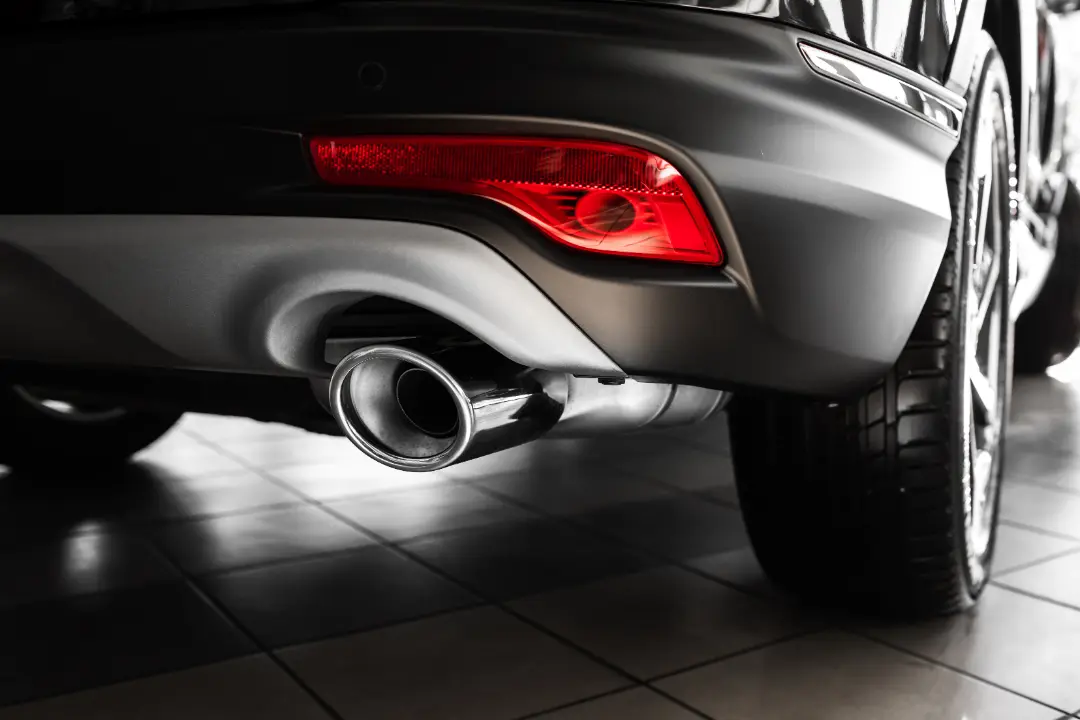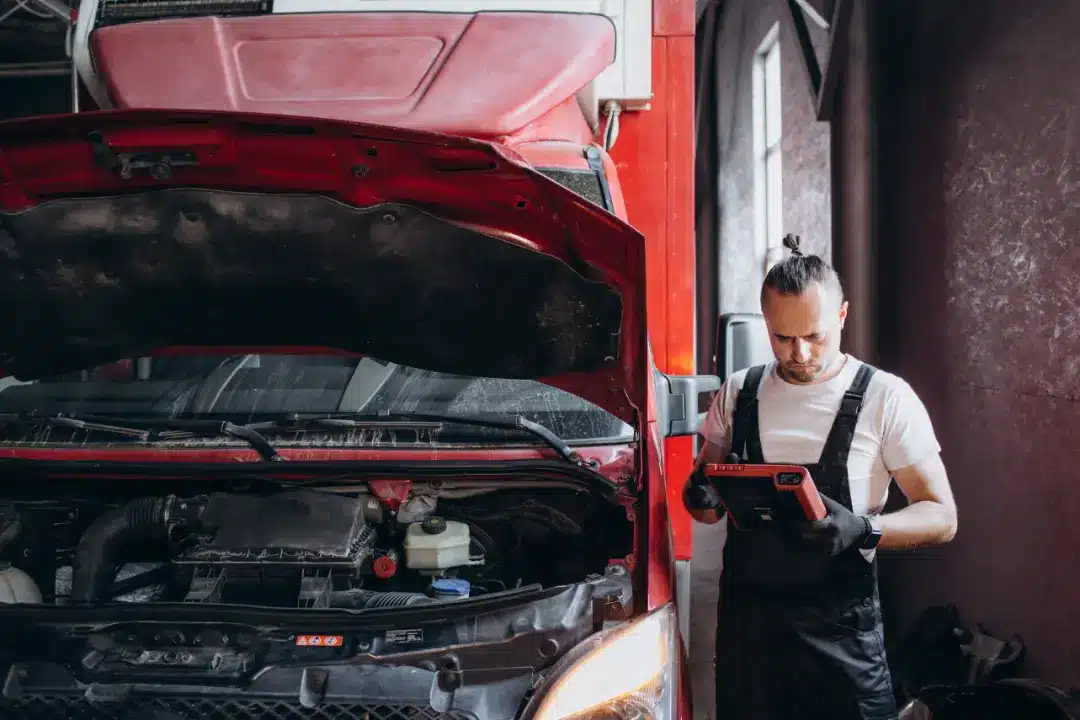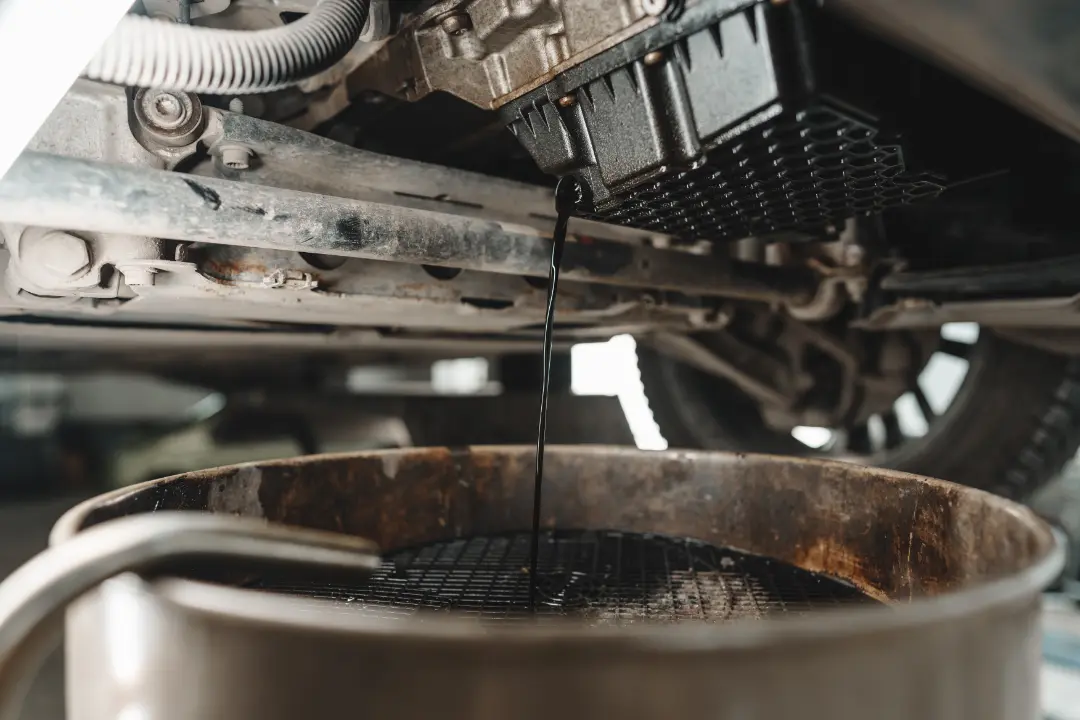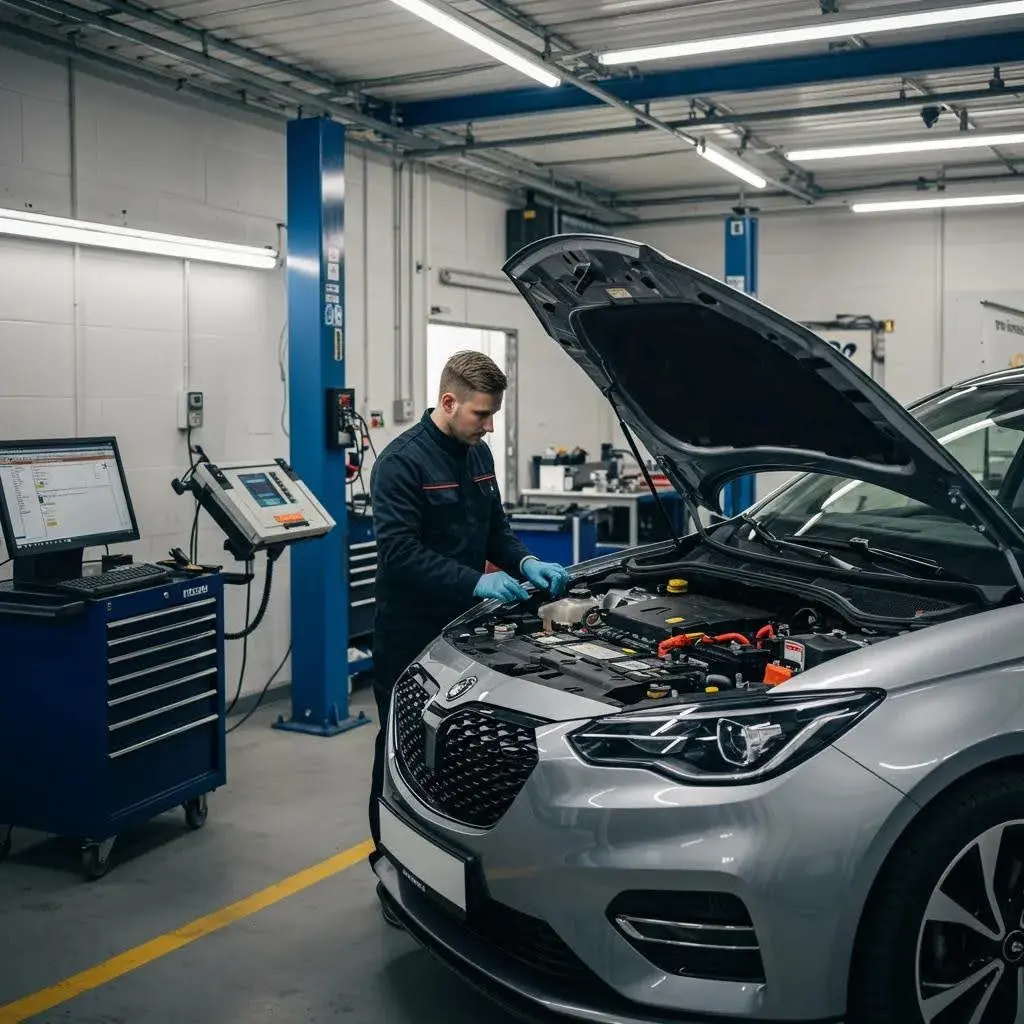
Petrol, diesel, and electric cars need different maintenance routines that affect costs, frequency, and component checks. Understanding these differences helps Tonbridge drivers budget wisely and choose the right garage.
This guide covers three areas: how servicing tasks differ between internal combustion engines (ICE) and electric vehicles (EVs), typical UK servicing costs, and why local expertise, especially for classic cars, matters when booking MOTs, servicing, and repairs. SME currently services petrol/diesel and classic vehicles; EV servicing is not available yet.
We’ll update our site when this changes.
Key Differences in Petrol, Diesel, and Electric Car Servicing
Petrol and diesel vehicles need oil changes, fuel filter replacements, and exhaust checks, while electric cars focus on battery health, software diagnostics, and regenerative braking. This shift simplifies EVs by reducing moving parts and eliminating tasks like spark-plug or timing-belt replacements, lowering labour and parts costs.
For example, a diesel service may include work on the diesel particulate filter, irrelevant to a battery-powered car. Recognising these distinctions sets up a detailed comparison of components, service intervals, and cost factors.
Electric Car Servicing vs. Petrol and Diesel Maintenance
Electric car servicing centres on battery performance, electric motor checks, and high-voltage diagnostics. Unlike petrol engines that need spark-plug inspections and diesel engines needing injector cleaning, EVs bypass oil changes.
Technicians perform software updates to calibrate battery management systems and assess regenerative braking efficiency, which can extend brake-pad life. This streamlined approach reduces mechanical wear, so electric servicing often proves more affordable and requires fewer visits than ICE maintenance.
Components Requiring Regular Servicing in ICE vs. Electric Vehicles
Below is a component comparison of core servicing tasks for petrol/diesel cars and electric vehicles.
| Component | Petrol/Diesel Task | Electric Vehicle Task |
|---|---|---|
| Engine Oil | Change at manufacturer-recommended intervals | Not required |
| Brake System | Inspect pads and discs regularly | Inspect pads semi-annually; less wear |
| Transmission Fluid | Replace as specified by the manufacturer | Not usually applicable |
| High-Voltage Battery | Not applicable | Diagnostic health check with thermal scan |
| Filters (Air/Fuel) | Replace each full service | Replace cabin air filter only (typically) |
Service Frequencies: Regular vs. Electric Cars

Electric vehicles generally follow manufacturer-set schedules and often have longer intervals than petrol or diesel cars.
With fewer moving parts and no oil changes, EV owners can reduce routine visits, and regenerative braking can extend brake-pad life. With this in mind, Tonbridge drivers can plan servicing that balances convenience and longevity, leading to a closer look at costs.
Electric Car Servicing Costs in the UK vs. Petrol and Diesel Vehicles
Electric vehicle servicing in the UK is often lower than comparable petrol or diesel services due to reduced labour and fewer fluid changes, though specialised diagnostics and high-voltage safety protocols can add cost. Analysing these figures helps local owners budget and highlights where ICE servicing remains a larger expense.
Typical Electric Car Servicing Costs in the UK
A standard electric car health check, covering battery diagnostics, motor inspection, and brake review, includes software updates and wear assessments.
In contrast, a full petrol service includes oil changes, filter replacements, spark-plug checks, and fluid top-ups. These figures show why many drivers find electric servicing more straightforward and often lower cost.
Why Electric Car Servicing Often Costs Less Than Petrol Car Maintenance
Electric cars eliminate oil, filter, and exhaust system servicing, reducing labour-intensive tasks. Regenerative braking decreases brake-pad replacements, and simpler drivetrains require fewer diagnostic hours. Together, these factors lower parts and labour expenses, making monthly running costs more predictable than typical ICE maintenance.
Potential Higher Repair Costs Unique to Electric Vehicles
While routine EV servicing is cost-effective, repairs to battery packs or electric drivetrain components can be higher than comparable ICE work. Damage to underbody components or high-voltage wiring requires specialist skills, which may attract premium labour rates. Understanding these risks helps with insurance decisions and long-term ownership planning.
Differences in Servicing Hybrid Cars vs. Electric and Regular Vehicles
Hybrid vehicles combine ICE and electric systems, requiring checks on engines, batteries, and inverters. This dual-architecture increases inspection points but retains many standard ICE tasks, such as oil changes and filter replacements.
Hybrid owners benefit from regenerative braking yet still face routine fluid and spark-plug maintenance, so costs often fall between pure EVs and petrol/diesel vehicles.
Hybrid Car Servicing: Combining ICE and Electric Maintenance
Hybrid servicing integrates petrol or diesel oil changes, filter replacements, and spark-plug inspections with battery health scans and inverter-coolant checks.
Technicians verify smooth transitions between combustion and electric drive modes and confirm no fault codes are present. This thorough approach can take longer than an EV health check but remains less labour-intensive than a full ICE service.
Additional Checks for Hybrid Vehicles
Beyond standard maintenance, hybrids require high-voltage battery diagnostics, inverter-coolant level checks, and assessments of electric-motor torque transfer. Neglecting inverter coolant can cause overheating, while a battery imbalance can affect fuel economy. These specialised tasks justify targeted technician training across both propulsion systems.
Hybrid Servicing Costs vs. Petrol and Electric Cars
Hybrid servicing is typically priced between EV checks and comprehensive petrol services, reflecting the combined complexity of ICE fluid changes and electric-system diagnostics. Owners therefore benefit from moderate servicing budgets while enjoying regenerative-braking advantages not found in conventional ICE vehicles.
Choosing Local Car Servicing in Tonbridge for Petrol, Diesel, or Classic Vehicles
Opting for a trusted local garage for car servicing delivers convenience, personalised attention, and transparent pricing. Sovereign Motor Engineers has served Tonbridge drivers since 2010, offering MOTs at £54.85, comprehensive ICE servicing, and expert classic car restoration. Booking locally means flexible scheduling, face-to-face consultations, and the assurance of a neighbourhood specialist.
Sovereign Motor Engineers: A Trusted Tonbridge Garage
Sovereign Motor Engineers combines over a decade of local experience with professional integrity, earning repeat business and referrals throughout Tonbridge and the surrounding areas. We’ll explain any findings and costs before work begins. This dedication to clear communication and fair pricing builds confidence.
SME’s Specialisation in Classic Car Repairs and Servicing
Enthusiasts of classic and vintage cars value the garage’s tailored approach to aged engines, carburettor tuning, and bodywork restoration. Sovereign Motor Engineers employs period-correct techniques and sources authentic components to preserve originality.
This specialist care keeps legacy vehicles in roadworthy condition while protecting their historic value.
Future Plans for Electric Vehicle Servicing at Sovereign Motor Engineers
Sovereign Motor Engineers is investing in high-voltage training and specialised diagnostic tools and will announce EV servicing when ready. This strategic preparation supports growing EV adoption, ensuring local owners can access qualified technicians without travelling further afield.
SME’s Recognised Differences Between ICE and EV Servicing
Sovereign Motor Engineers acknowledges that EV servicing shifts the focus from fluid changes to electronic-system validation, regenerative-braking assessment, and battery thermal management. Technicians will adapt from spark plug expertise to high-voltage protocols, enhancing safety and precision in electric powertrain care.
Benefits of SME’s EV Servicing for Local Electric Car Owners
Once operational, EV servicing at the garage will offer shorter wait times, convenient local booking, and transparent pricing competitive with national outlets. Owners will benefit from reduced labour rates, familiar customer service, and a trusted local partner ready to support the region’s growing electric fleet.
Common Questions About Electric, Hybrid, and Regular Vehicle Servicing
Owners frequently inquire whether electric servicing is more affordable, how hybrid checks differ, and what routine tasks each propulsion type entails.
Many ask about service intervals for new electric models, the cost drivers behind ICE servicing, and whether classic cars require bespoke care. Addressing these topics helps drivers select the appropriate schedule and budget for their specific vehicle type.
- Drivers often ask why EVs do not require oil changes and how this impacts warranty terms.
- Hybrid owners frequently ask about the need for additional inverter-coolant checks and battery-balancing intervals.
- Petrol and diesel car owners often compare full and interim services to manage costs.
These recurring questions highlight the need for clear guidance and reinforce the value of choosing a knowledgeable local garage for all vehicle types. Modern ICE services rely on electronic fault codes, standardised filter assemblies, and scheduled fluid replacements. Classic cars depend on manual tune-ups, mechanical timing checks, and visual inspections.
While a modern service might take around two hours, a classic restoration can extend over days or weeks, reflecting the bespoke craftsmanship involved.
Classic Car Servicing and Restoration vs. Modern Vehicle Maintenance
Classic car work demands specialised knowledge of aged carburettors, period-correct wiring, and legacy fuel systems, which modern ICE servicing rarely addresses. Technicians must interpret wear patterns on unique components and source obsolete parts.
This level of detail contrasts sharply with modern servicing, which relies on standardised modules and on-board diagnostics.
Unique Challenges in Classic Car Servicing
Vintage vehicles often feature bespoke engine designs, hand-built carburettors, and non-pressurised cooling systems that require careful adjustment.
Corrosion-prone chassis elements need regular inspection, while original upholstery and trim demand specialised preservation techniques. Balancing authenticity with roadworthiness presents a technical art form that modern cars do not require.
Classic Car Maintenance vs. Modern ICE Vehicle Servicing
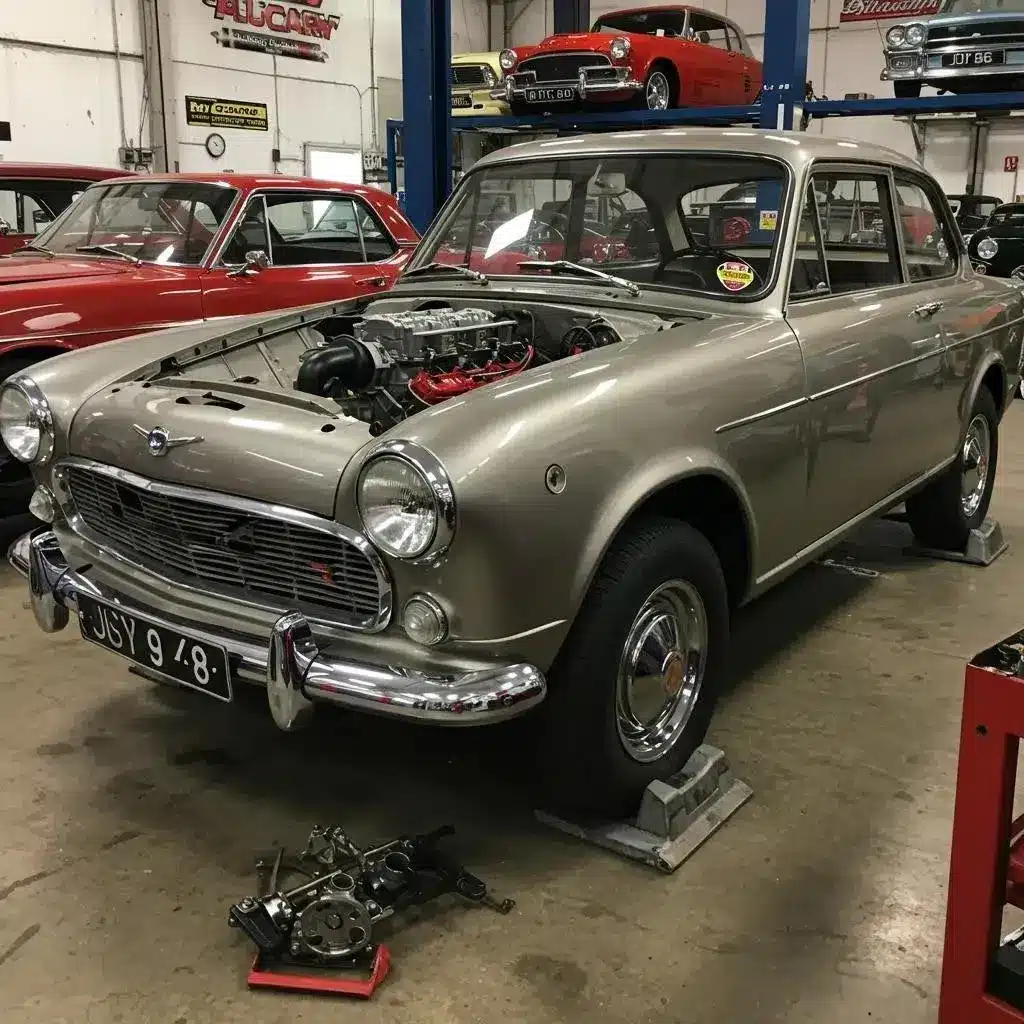
Modern ICE services rely on electronic fault codes, standardised filter assemblies, and scheduled fluid replacements. Classic cars depend on manual tune-ups, mechanical timing checks, and visual inspections. While a modern service might take around two hours, a classic restoration can extend over days or weeks, reflecting the bespoke craftsmanship involved.
Classic Car Makes and Models Specialised by SME
Sovereign Motor Engineers has restored models from British marques such as MG, Triumph, and Austin-Healey, alongside iconic European and American classics. Their expertise covers engine rebuilds, brake overhauls, and body-frame alignment, ensuring each project upholds period authenticity while meeting contemporary safety standards.Sovereign Motor Engineers is a trusted local partner for petrol, diesel, and classic car owners in Tonbridge. Whether you need transparent MOT prices, specialist vintage restoration, or future EV servicing expertise, our Tonbridge car garage combines technical skill with neighbourly service. Contact the team to arrange your next service and experience the benefits of expert local care.

